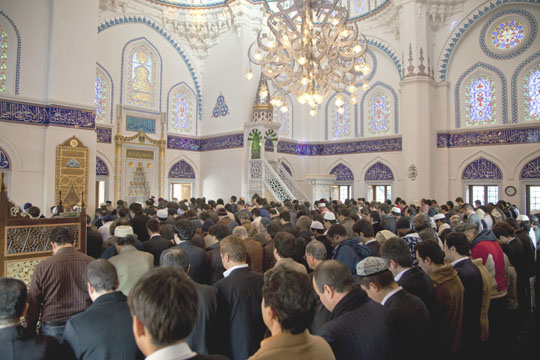AhlulBayt News Agency - Police in Tokyo have monitored the activities of Muslims in Japan, based on their religion alone, since at least 2008.
A court case challenging the constitutionality of this surveillance program was recently denied.
On May 31, 2016, Japan's Supreme Court dismissed the case questioning the legality of conducting surveillance on and profiling Muslims in Japan, even though surveillance based on religion or ethnicity is generally illegal under Japan's constitution, which enshrines the right to privacy, equal protection under the law, and freedom of religion. This marked the culmination of several years of lawsuits by the same group of plaintiffs in different courts, resulting in a variety of judgments.
The fact that Tokyo police were conducting surveillance of Muslims first became public in 2010, when over 100 internal Metropolitan Police Department documents were leaked online. The documents included the names, addresses and other personal information of Muslims residing in Japan. The surveillance dated back several years prior to 2010, and was apparently motivated by security arrangements for the 2008 G-8 summit held in Japan.
According to English-language newspaper Japan Times:
The leak revealed that the police had compiled detailed profiles on 72,000 Muslims, including personal information such as bank account statements, passport details and records of their movements. The leak also showed that police had at times planted cameras inside mosques and used undercover agents to infiltrate Islamic nonprofit organizations and halal grocers and restaurants.
Following the leak, 17 of the Muslims named in the documents sued the government and police in order to have the spying declared illegal. In 2014, Tokyo District Court agreed that the leak had violated the plaintiffs’ right to privacy and awarded them ¥90 million (about US $900,000) in compensation. However, the court also ruled that the intelligence-gathering was "necessary and inevitable” in order to protect Japan against the threat of international terrorism, despite constitutional protections for freedom of religion and equal protection under the law.
In the 2014 court case related to the leak, the plaintiffs alleged:
The Metropolitan Police Department and the National Police Agency had, as of 31 May, 2008, assessed and digitalized the personal information of ‘roughly 12,677 individuals’ equaling ‘roughly 89 percent of the 14,254 foreign nationals from Muslim countries registered in Tokyo,’ and later, by the time the Hokkaido Toya Lake summit convened in July of that year, had ‘profiled roughly 72,000 individuals from OIC (Organisation of the Islamic Conference) countries (assessment rate of 98 percent).’
Earlier in 2016 the group asked the Supreme Court of Japan to rule on the legality of the surveillance. On May 31, the Supreme Court dismissed the case, while upholding the decision to award compensation to Muslims affected by the leak.
On the Center for Constitutional Rights blog, Igeta Daisuke, one of the plaintiff attorneys involved in the case, described the extent of the surveillance program in more detail:
Police agents were stationed undercover in mosques all over the country, and the surveillance program extended to almost every other center of Muslim life, from halal shops to what the police bizarrely deemed "Islam-related” organizations that included Doctors Without Borders, UNESCO, and other prominent NGOs.
Further documentation of the surveillance program indicates that police regularly approached Muslim residents of Japan, asking them to provide information about and effectively spy on other members of their community. This reportedly affected their relationships with their friends, neighbors and family, leaving psychological wounds.
With no census data available, it's estimated that there are about 100,000 people who identify as Muslim residing in Japan. Some of these people are Japanese citizens, while others are non-Japanese students and permanent residents with deep ties to the country.
/257

